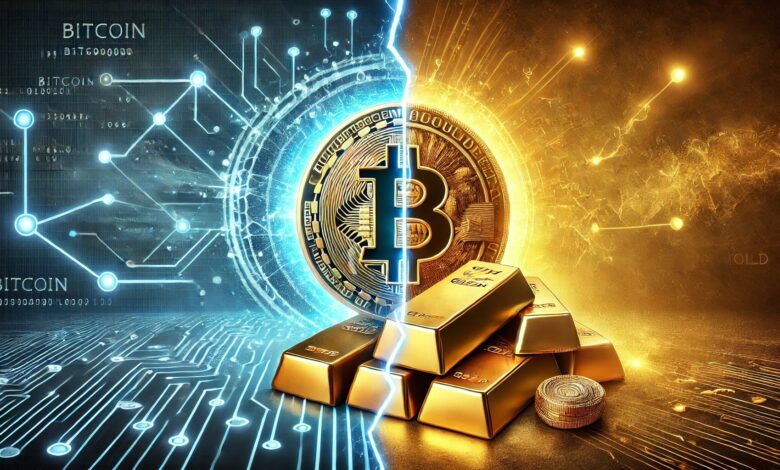
Elon Musk and the Mystery of Fort Knox Gold Reserves: A Modern Debate
Introduction to Fort Knox’s Enigma
In a recent weekend interaction on X, Elon Musk was invited to extend his renowned cost-reduction initiative, the Department of Government Efficiency (DOGE), to one of America’s most secure sites – Fort Knox, the legendary US Army installation believed to house 4,580 tons of gold. This conversation has rekindled longstanding questions about the transparency and true contents of America’s gold vault, drawing interest from diverse groups including Bitcoin enthusiasts and lawmakers.
Musk Ignites the Fort Knox Gold Debate
Financial news platform Zerohedge (@zerohedge) instigated the discussion by tagging Musk, suggesting, “It would be great if @elonmusk could take a look inside Fort Knox just to make sure the 4,580 tons of US gold is there. Last time anyone looked was 50 years ago in 1974.” This tweet, which garnered 1.9 million views and over 59,000 likes, prompted Musk to inquire: “Surely it’s reviewed at least every year?” Zerohedge replied, “It should be. It isn’t.”
The online community quickly responded, with various speculations and suggestions surfacing. The absence of a recent comprehensive audit of Fort Knox’s gold reserves has fueled rumors that the gold might have been sold off or depleted.
Senator Rand Paul’s Response
Soon after, Senator Rand Paul (R-Ky.) joined the conversation by supporting Musk’s idea for a formal inspection, stating: “Nope. Let’s do it.” His father, former Representative Ron Paul (R-Texas), has historically advocated for more transparency regarding the US gold reserves. His concerns in the 1970s suggested that the gold might not be as secure as long believed.
The last known visits to Fort Knox were in 1974, when journalists and Congress members were allowed entry, and in 2017 when former Treasury Secretary Steve Mnuchin visited. Nevertheless, a full audit of the reserves hasn’t been publicly recorded in recent decades, perpetuating conspiracy theories about the gold’s existence.
The Bitcoin Angle
The speculation around Fort Knox’s gold reserves quickly evolved into a broader discussion about the verifiability of Bitcoin. Nate Geraci, President of the ETF Store and Co-Founder of the ETF Institute, highlighted how Bitcoin could eliminate doubts over asset ownership. “If only there were a technological solution that would allow anyone to independently verify ownership of an asset,” Geraci remarked, adding, “If Fort Knox doesn’t have the gold, it’s game on for Bitcoin.”
Bitcoin’s Transparency Advantage
Dennis Porter, CEO of Satoshi Act Fund, emphasized the continuous transparency Bitcoin provides: “Another reason states should prefer Bitcoin instead of gold. The public can audit government-Bitcoin-holdings anytime. The last extensive audit of our gold reserves was over 70 years ago.”
US Senator Cynthia Lummis, a prominent Bitcoin supporter and Senate Banking Subcommittee Chair on Digital Assets, stressed the need for modernization: “Bitcoin fixes this. A Bitcoin reserve can be audited 24/7 with a computer. It’s time to upgrade our reserves.”
Speculations and Predictions
Some enthusiasts speculated on dramatic outcomes if a Fort Knox audit revealed less gold than reported. Walker, host of THE Bitcoin Podcast, envisioned a scenario starting with Musk-initiated audits discovering less than 500 tons of gold. This could lead to a new Strategic Bitcoin Reserve, prompting international competition for Bitcoin and diminishing gold’s stature.
Eric Balchunas, a Bloomberg ETF analyst, responded to Walker’s prediction with cautious skepticism, questioning the likelihood of such events. As of now, there has been no official confirmation of a new Fort Knox audit, but the potential implications for both gold and Bitcoin remain significant.
Conclusion: The Future of Gold and Digital Assets
The mystery surrounding Fort Knox’s gold reserves continues to captivate public attention, especially with the debate’s intersection with Bitcoin’s transparency and verifiability. Whether the US government will organize a comprehensive audit remains unknown, but the conversation has undoubtedly highlighted the evolving relationship between traditional and digital assets.







